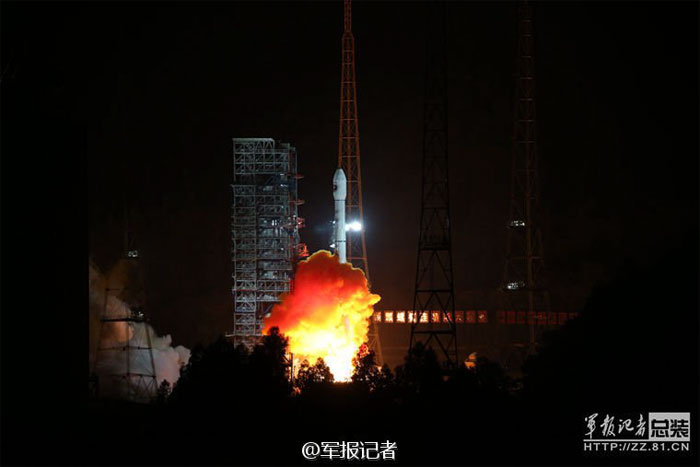.

China has launched the first satellite for the Southeast Asian country of Laos on a Long March 3B rocket from the Xichang Satellite Launch Centre.
Laosat-1, which was designed, developed and delivered on-orbit by China, blasted off from Xichang in Sichuan Province at 16:07 UTC Friday (00:07 Beijing time on Saturday, November 21).
29 minutes after lifttoff the satellite had separated from the rocket upper stage and deployed its solar panels. The launch was declared successful at 16:44.
LaoSat-1
The satellite is designed to provide communication links for government work, television transmission and a range of telecommunication applications in the mountainous, heavily forested country.
“The launch of the satellite by China is a special gift to Laos to mark the 40th anniversary of the Lao People's Democratic Republic on December 2,” the Laotian Minister of Posts and Telecommunications Hiem Phommachanh told national media ahead of launch.
Laosat-1 will operate in a geostationary orbit at 128.5° East, a slot reserved for Laos. The expected lifetime is 15 years, with 14 C band and 8 Ku band transponders for various communication services.
Mr Heim added that Laos is very proud to have its own satellite for the purposes of socio-economic advancement, which will be an important source of income for the country.
A number of representatives from Laos travelled to the launch site in Sichuan to witness the launch and preparations.
.

Laos signed a contract for Laosat-1 with the China Great Wall Industry Corporation, which deals with China's international space industry customers.
The Laos National Authority for Science and Technology will operate the satellite once operational in its designated orbit.
LaoSat-1 is based on the Dongfanghong series of satellite platforms, designed and developed by the China Academy of Space Technology (CAST). Sources state either a debut DFH-3B or a DFH-4S was used.
The Long March-3B rocket, currently China's most powerful active rocket, was developed by China Academy of Launch Vehicle Technology (CALT).
China's heavy launch schedule
Friday's LaoSat-1 launch was China’s 15th in 2015, following missions involving four Beidou global positioning satellites, the Gaofen-8, Gaofen-9 and Yaogan Weixing-27 earth observation satellites, a classified ka-band communication test satellite, the next-gen Long March 6 debut which lofted 20 small satellites, and the maiden flight of the solid-fuelled Long March 11.
Quelle: gbtimes
4521 Views
